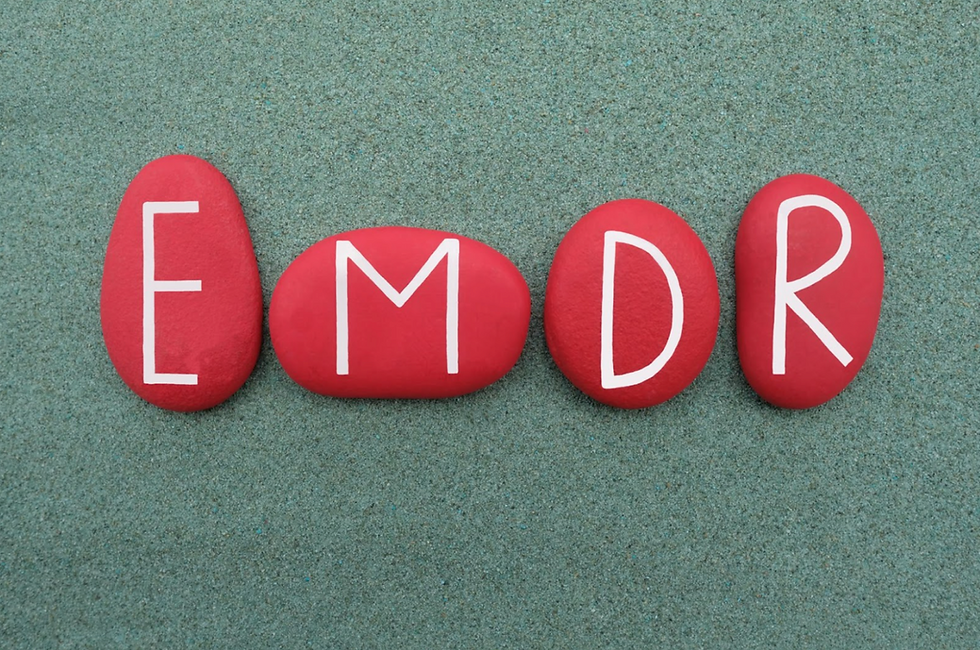Growing up with emotionally immature parents can leave deep emotional scars, shaping the way we see ourselves, interact with others, and approach life. In this article, we’ll explore the signs of emotional immaturity in parents, the effects on their children, and actionable steps to reclaim your emotional well-being.

Understanding Emotional Immaturity in Parents
What Is Emotional Immaturity?
Emotionally immature parents often struggle with self-regulation, meaningful connection, and providing a stable, nurturing environment. Key traits of emotional immaturity include:
Inconsistent and unpredictable behaviours: Creating instability through changing rules, emotional outbursts, and inconsistent reactions, leaving children feeling anxious and unsafe.
Impulsive behaviours: Impulsive actions and emotional reactions, like anger or avoidance, often destabilizing the family and overlook long-term consequences.
Self-centeredness: Prioritizing their own needs and emotional validation over their children’s, leaving the child’s emotional needs neglected.
Boundary issues: Either neglecting entirely or overly rigid, leading to blurred roles, unhealthy dynamics, and/or feelings of entrapment.
Low empathy: They struggle to acknowledge or validate their child’s emotions, often downplaying feelings and leaving children feeling unsupported.
Lack of accountability: Deflecting responsibility for their behaviour, often blaming others, which fosters guilt and avoidance of accountability in their children.
Understanding Parentification:
Parentification is a form of role reversal in which a child takes on responsibilities typically belonging to a parent or caregiver. This dynamic places an undue emotional, physical, or financial burden on the child, often at the expense of their own developmental needs. Children of emotionally immature parents often grow up to be people pleasers, unsure of how to support their own needs.
As Lindsay C. Gibson writes in her book Adult Children of Emotionally Immature Parents, “Parents who lack emotional maturity leave their children to navigate life without a compass.”
Psychological Effects on Adult Children

Relationship Struggles
Growing up with emotionally immature parents often leaves adult children struggling to form and maintain healthy relationships. The dysfunctional patterns and dynamics learned in childhood shape the way individuals approach their connections with others. Here’s a closer look at the common challenges:
Boundary Issues
Boundaries are essential for healthy relationships, but children of emotionally immature parents often grow up in environments where boundaries were either disregarded or overly rigid. As adults, this can manifest in:
Difficulty saying “no”: Fear of rejection or guilt may lead to agreeing to things that feel uncomfortable or overextending oneself.
Over-accommodating behaviours: Chronically prioritizing the needs of others while neglecting one’s own well-being.
Blurred boundaries: Struggling to differentiate between one’s own emotions and the emotions of others, leading to enmeshment in relationships.Learning to set and maintain boundaries is a vital step in fostering healthier connections.
Codependency
Codependency often arises when individuals place others’ needs above their own, seeking validation or purpose through caregiving or self-sacrifice. This dynamic can include:
Neglecting personal needs: Feeling responsible for others’ happiness and well-being while ignoring one’s own emotional health.
Difficulty separating identity: Defining one’s sense of self-worth through the role they play in someone else’s life.
Avoiding conflict: Suppressing personal desires or opinions to maintain peace, often at the cost of authenticity.
Breaking free from codependency involves recognizing these patterns and rebuilding a sense of self-worth independent of others.
Role-Playing in Relationships
Emotionally immature parents often model relationships based on roles rather than genuine connection. This can lead adult children to unconsciously adopt similar behaviours in their own relationships. “You can’t forge a deep and satisfying relationship from the position of a role-self… Without that, the relationship is just playacting.” (C. Gibson) Examples include:
Performing instead of connecting: Feeling the need to act in ways that please others rather than expressing one’s true self.
Superficial interactions: Avoiding vulnerability and maintaining superficial relationships.
Fear of rejection and authenticity: Believing that being genuine might result in rejection or disapproval.
The Emotional and Psychological Toll
The effects of emotionally immature parenting don’t stop in childhood. Left unaddressed, they can lead to:
Emotional dysregulation: Without parents productively managing their emotions, adults of emotionally immature parents may also have difficulty regulating their emotions.
Insecure attachment: The absence of emotional stability fosters a fear of abandonment, leaving children overly reliant on external validation to feel secure.
Relationship challenges: Difficulty expressing emotions or understanding healthy relationship dynamics can result in struggles with romantic and interpersonal connections.
Trust issues: Inconsistent or unpredictable parental behaviour can erode a child’s ability to trust others, even in adulthood.
People-Pleasing Behaviour: To avoid conflict, children of emotionally immature parents learn to prioritise others' happiness over their own, even at a personal cost. Unaddressed, this carries forward into adulthood.
Difficulty with boundaries: Growing up prioritizing a parent’s needs often results in struggles to set, maintain, and respect healthy boundaries in relationships.
Low self-esteem: Constant criticism or the inability to meet parental expectations can create a negative self-image and feelings of unworthiness in adulthood.
Lack of self-identity: Adult children of emotionally immature parents often have difficulty understanding one’s own desires, values, and emotions, often resulting from prioritizing others’ needs over personal growth.
Being aware of the long term impact is the first step toward reclaiming your emotional well-being.
Steps Toward Recovery
Acknowledging the Impact
Begin by accepting that your experiences were real and impactful. It’s okay to grieve the love and stability you may not have received. Therapy, self-reflection, and building supportive relationships can help individuals navigate these challenges, fostering connections that are healthier, more fulfilling, and rooted in authenticity.
Therapy and Support
Professional support is a powerful tool in healing. Therapy options include:
Cognitive-Behavioural Therapy (CBT): Focuses on identifying and reframing negative thought patterns and beliefs instilled by emotionally immature parenting. It helps build self-esteem and develop healthier coping mechanisms.
Trauma-Informed Therapy: Addresses and understands the emotional wounds caused by childhood experiences while creating strategies to overcome and an environment to heal. Techniques like Eye Movement Desensitization and Reprocessing (EMDR) and somatic therapy are forms of trauma-informed therapy.
Internal Family Systems Therapy (IFS): IFS therapy assists individuals in recognizing the various "parts" of themselves that may have formed due to their early experiences, like the "protector" part that might step in to compensate for a lack of parental support.
Attachment-Based Therapy: Explores the impact of insecure attachment styles formed during childhood and works toward developing healthier ways of connecting with others.
Dialectical Behaviour Therapy (DBT): Offers tools for managing intense emotions, improving interpersonal skills, and setting healthy boundaries. This is especially helpful for those dealing with the emotional fallout of parentification or boundary violations.
Inner Child Work: Encourages reconnecting with the wounded inner child to heal unmet emotional needs, foster self-compassion, and break cycles of self-blame.
Narrative Therapy: Focuses on reframing the personal narrative shaped by the experiences with emotionally immature parents, empowering individuals to take control of their own story.
Family Systems Therapy: Examines dysfunctional family dynamics and their ongoing influence, helping individuals gain clarity and detangle from unhealthy roles and patterns.
Group Therapy: Offers a supportive space to connect with others who have similar experiences, reducing feelings of isolation and fostering shared learning and encouragement.
Psychodynamic Therapy: Explores unconscious patterns and unresolved conflicts stemming from childhood to bring awareness and facilitate lasting change.
Each therapy type offers unique benefits, and a therapist can help determine the best approach for your specific needs.

Setting Boundaries
Establishing clear boundaries is essential for protecting your emotional well-being and fostering healthier relationships.
Define your limits: Identify what you need to feel safe and respected.
Communicate assertively: Use “I” statements to express your needs without blaming others.
Rebuilding Emotional Intimacy
Healing from the impact of emotionally immature parents requires a commitment to rebuilding emotional intimacy—both with yourself and others.
Cultivating Self-Awareness
Reflect on your emotional needs and triggers: Ask yourself questions like, “What do I need to feel safe in a relationship?” or “What situations make me feel overwhelmed or defensive?”
Journaling: Writing down your thoughts and feelings can help clarify what you’re experiencing and why. For example, you might journal about a difficult interaction or recurring emotional pattern to gain insight into its roots. Over time, journaling can help you identify themes and track your progress.
For further information on journaling, check out our 20 journal prompts to improve emotional intelligence.
Strengthening Relationships
Surround yourself with supportive people: Seek out individuals who value authenticity and mutual respect. This could include friends, romantic partners, or community groups where you feel safe being yourself. Relationships thrive when there is a foundation of trust and encouragement.
Communicate openly: Healthy relationships are built on honest communication. Practice expressing your thoughts and feelings clearly and assertively. Example: Instead of saying, “I’m fine,” when you’re not, try sharing how you truly feel.
Building Intimacy with Yourself
Self-compassion: Acknowledge your progress and recognize that healing takes time. Celebrate small victories, and remind yourself that setbacks are a natural part of growth.
Prioritize self-care: Make time for activities that bring you joy, peace, and a sense of fulfillment. Whether it’s reading, taking a walk, or practicing yoga, these moments of self-care contribute to your emotional well-being.
Rebuilding emotional intimacy is a process that requires patience, self-reflection, and practice. As you cultivate self-awareness and foster genuine relationships, you’ll begin to experience deeper connections and a greater sense of emotional fulfillment.
Breaking the Cycle
Healing wounds from emotionally immature parents is not only about personal healing—it’s also about making conscious choices to break the cycle and prevent it from impacting future generations.
Conscious Parenting
For parents, breaking the cycle means offering children the stability, empathy, and understanding you may not have experienced. This involves:
Active listening: Validating your child’s emotions and perspectives.
Consistency: Providing a predictable and nurturing environment.
Celebrating Progress
Healing from emotional wounds is a journey, not a destination. Recognizing and celebrating your progress is essential to maintaining motivation and fostering self-compassion along the way. As you heal, you may notice yourself stepping out of the “role-self” that Lindsay C. Gibson describes. Each time you share your authentic thoughts and feelings, you create space for deeper and more fulfilling relationships.
Give Yourself Grace
Breaking the cycle is not about perfection; it’s about progress. There will be setbacks, moments of doubt, and times when old habits resurface. Treat these moments as opportunities to learn and grow rather than as failures.
Recovering from the effects of emotionally immature parents is a challenging but rewarding journey. It’s about reclaiming your emotional health, rebuilding self-esteem, and creating the life and relationships you deserve.
If you’re ready to take the next step in your healing journey, VMA Psych offers compassionate, trauma-informed therapy and EMDR tailored to your needs. Contact us today to start reclaiming your emotional well-being.
Welcome to VMA Psych.
Your trusted provider of exceptional mental health services in the GTA & beyond. Learn More
With 40+ years as Toronto's leading psychologists, we guide individuals through life's complexities, offering specialized services for a brighter future.





















